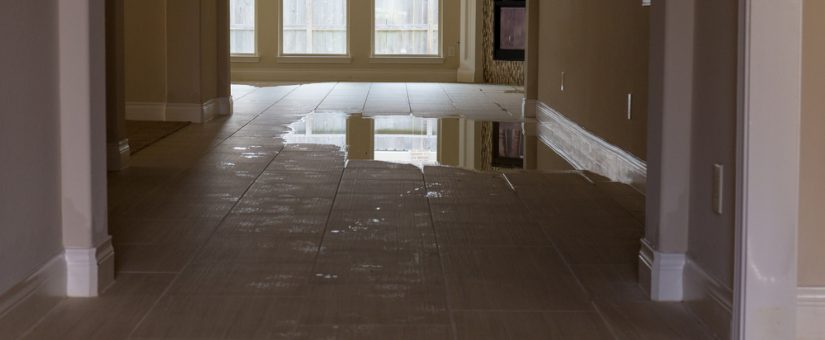The House's Common Typical Leak Factors: Analysis
The House's Common Typical Leak Factors: Analysis
Blog Article
Everybody has their personal rationale when it comes to How to Find Water Leaks.

Leakages not only create waste of water however can additionally trigger unneeded damage to your house as well as promote unwanted organic growth. By recognizing and also looking for day-to-day situations that trigger leaks, you can safeguard your house from future leaks and also unneeded damage.
Elbowing in origins
A lot of water leakages start outside your home as opposed to inside it. If you observe a sudden decline in water stress, say in your faucet, require time to go out and analyze your backyard. You may see wet spots or sinkholes in your backyard, which may imply that tree origins are getting into water lines causing water to seep out. You can have your plumber check for invasion, particularly if you have trees or shrubs near your home.
Corroded water systems
This could be the cause of discoloration or bending on your water pipelines. If our plumbing system is old, take into consideration replacing the pipelines considering that they are at a higher threat of corrosion than the more recent models.
Faulty Pipeline Joints
The point at which your pipelines connect is often the weakest web link in the waterline. Pipe joints can degrade over time, leading to water leakages. The majority of pipe joints are not easily noticeable. If you have loud pipelines that make ticking or banging sounds, especially when the warm water is switched on, your pipeline joints are possibly under a great deal of stress. It is advisable to have your plumber examine your system yearly.
Instant temperature level modifications.
Extreme temperature level modifications in our pipes can create them to broaden and acquire unexpectedly. This development as well as tightening may cause splits in the pipelines, especially if the temperature level are below freezing. If you maintained an eye on exactly how your plumbing functions, it would certainly be best. The presence of the previously stated situations often shows a high risk.
Poor Water Connectors
Sometimes, a leak can be caused by loose tubes and pipes that provide your home appliances. Generally, changing is what triggers the loose water Links. You may discover in the case of a cleaning equipment, a pipe may spring a leakage because of shaking throughout the spin cycle. In case of a water connections leakage, you may see water running directly from the supply line or pools around your appliances.
Blocked Drains
Clogged drains pipes may be irritating and also inconveniencing, but they can in some cases wind up causing an overflow causing break pipelines. Maintain getting rid of any kind of products that might decrease your drains pipes that could block them to stay clear of such inconveniences.
All the above are causes of leaks but not all water leakages result from plumbing leakages; some leakages may come from roofing system leakages. All leakages should be fixed quickly to prevent water damage.
Leakages not just cause waste of water yet can additionally cause unneeded damage to your home as well as promote unwanted organic growth. By comprehending and looking for day-to-day situations that trigger leakages, you can safeguard your home from future leakages and also unnecessary damages. Today, we will certainly look at 6 leak causes that may be creating your pipelines to trickle.
At times, a leak can be created by loosened pipes and also pipes that provide your home appliances. In instance of a water connections leakage, you may see water running straight from the supply line or puddles around your appliances.
How To Check For Water Leak In Your Home
How To Check for Leaks
The average household's leaks can account for nearly 10,000 gallons of water wasted every year and ten percent of homes have leaks that waste 90 gallons or more per day. Common types of leaks found in the home are worn toilet flappers, dripping faucets, and other leaking valves. These types of leaks are often easy to fix, requiring only a few tools and hardware that can pay for themselves in water savings. Fixing easily corrected household water leaks can save homeowners about 10 percent on their water bills.
To check for leaks in your home, you first need to determine whether you're wasting water and then identify the source of the leak. Here are some tips for finding leaks:
Take a look at your water usage during a colder month, such as January or February. If a family of four exceeds 12,000 gallons per month, there are serious leaks.
Check your water meter before and after a two-hour period when no water is being used. If the meter changes at all, you probably have a leak.
Identify toilet leaks by placing a drop of food coloring in the toilet tank. If any color shows up in the bowl after 10 minutes, you have a leak. (Be sure to flush immediately after the experiment to avoid staining the tank.)
Examine faucet gaskets and pipe fittings for any water on the outside of the pipe to check for surface leaks.
Undetected water leaks can happen without the home or business owner even realizing. If you suspect a water leak, but not able to find the source. It is time to contact a professional water leak detection service, The Leak Doctor.
How To Find a Water Leak In Your Home
https://www.leakdoctor.com/blog/How-To-Check-For-Water-Leak-In-Your-Home_AE197.html

Hopefully you enjoyed our part about Common Water Leaks In House. Thanks a ton for taking a few minutes to read our short article. Loved our write up? Please share it. Let other people find it. Thanks so much for your time invested reading it.
Leak? Reach out! Report this page